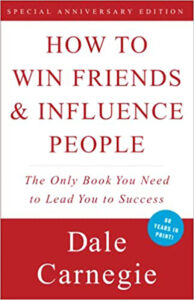Frank and Ian coach one of their loyal listeners as he approaches a crossroads in his career. “Milosh” is a quality engineer in France who wants to make the move into sales and marketing. In this fun conversation, we consult Milosh on steps he can take within his company and potentially outside of his company.
—
Watch the episode here
Listen to the podcast here
“How Do I Transition From A Technical To A Sales Role?”
A Coaching Session With Frank And Ian
Loyal readers, you are in for a treat. One of the loyal subscribers that we didn’t even know existed reached out to us from France with a bunch of questions. Frankie and I thought, “What the hell?” This is our first episode of its kind where we do some live consulting with a young go-getter in France who is looking to move from a technical role into sales.
We had a blast doing this. There are a lot of good nuggets for about anyone in their career. I would also use this as an opportunity to say if you are one of our regular readers and you would like to do something similar where you come on this show and get some live coaching from Frankie and me for free, which I don’t know about Frank. I give away stuff more than him but he charges thousands of dollars an hour for that stuff. Send us an email, reach out on LinkedIn and let us know what you think.
If you would like to do that in a way where we keep your name anonymous because you are worried about your company hearing it, we called this fellow, Milosh the whole time, that is not his name and we are not going to show his face, we could do the same for you. If you are a longtime reader, you have not given us a five-star review shame on you. If you are new, hit the subscribe button and if you love this episode, share it with your friends.
—
Frankie.
Ian, you son of a bitch.
We’ve got a special guest in this episode. This is a big deal and unusual for our program but one of our international fans, which we found out we had, is joining us. Our main man, Milosh, which may or may not be his real name because he is asking questions while working for an employer. Milosh, how are you?
I’m fine, thank you and you?
Where are you coming to us from?
I’m coming from France.
Frankie, we have readers in France. That’s incredibly exciting.

Sales Role: If there isn’t a path at your company to move from one role to another, you may have to think about looking at a different company.
Sadly, we don’t have the budget that they have for 60 minutes. We can’t do one of those composites or dark screens that we could hide you. We are going to probably put up a cartoon figure or something like that.
We should have a green screen for the Eiffel Tower behind them though, so it seems more legit. More of our savvy readers are going to think it’s some guy at Cava Companies office in Richmond with an accent. We have been talking with Milosh. He works for a large company and has a mechanical engineering background. His position is in quality engineering now. He aspires to be more in a strategic position in the company, some strategic direction marketing.
We are going to answer 3 or 4 big questions that he has for us but his questions center around how he can pivot and transition. Now, he has a brand that is very technical within his company and in his industry. What are some ways that he can start to pivot and position himself so that he can start doing different things? Is that a good summary, Milosh?
It’s fine for me to do and everything in between this. We can start.
What’s your first question for us?
What are, from your point of view, the ways to move from technical or quality profile to sales or business profile, internally or externally in general? How to gain credibility with the person who is working in the business sales team coming from technical background?
Milosh told us that his company is good. It has been good to him. He likes the company and it’s growing the direction. Let’s start with the internal if you were to stay within the company. If you want to be in sales, especially in your business, which is a B2B business, you have to understand who is going to influence the buying decision. In my opinion, this is your first big sale.
At this point, any good salesperson is going to do a lot of homework and research. They are going to try to understand, to get a decision out of this company, who all are the decision-makers and what are they motivated by? You need to be in a position where you are thinking about, “All of the sales positions in my company are decisions made by multiple people.” It’s normally a sales manager or that person’s manager. It might need an executive sign-off. There may be an influencer involved like human resources and things of those nature. In a company’s hierarchy, these decisions are made in vacuums.
If you want to go into sales, you have to understand who makes the decisions. Who is going to influence the buying decision? Click To TweetOne of the first things you have to start doing is researching how are decisions in my company made and the positions that are filled. Who makes those decisions? It’s something else that you have to understand and what are the criteria they use to fill those positions? The simplest way to go about it is to directly reach out to people that are in the job you want to be in next.
If that is an account manager position, sales rep position or a frontline customer acquisition position, I don’t know what your company calls it but there are people doing that job now that know how they’ve got into the job. They are the easiest people for you to get in touch with. That’s easier to talk to that person than it is maybe a senior executive that is making the position. You should talk to them.
I would start with talking to as many of those people as you can that will talk to you. With Zoom, Teams, and all these other tools, it’s pretty easy to get twenty minutes of someone’s time and say, “You are in a position that I aspire to be in one day. Can I get 15 to 20 minutes of your time and understand what you do?”
If you are going to go convince someone that you deserve a sales position, someone should give you a chance, you have to be able to tell them what that person is doing all day. What their objectives and measurables are? What skills and talents does it take to do the job? You have to think about, “How do I position myself in what I do every day to pivot and show the decision-makers that I have what it takes to do that job and that I understand what that job is?” I will quit talking and let Frankie jump in a little here.
I have a question for you first. Has anyone else blazed this path? At your company, has someone moved from the technical to the role you hope to aspire to?
I’m not sure but similar paths were possible.
Ian and I both went from technical roles to sales roles. What I can tell you is the technical side and the sales side are very different depending on what you are going to be selling. I was selling houses and I was writing down the inventory code of a fireplace and a salesperson training said, “It doesn’t matter. That confuses people. It’s a fireplace. It’s all they give a crap about. They don’t care about the MSRP number.”
What you need to understand, number one is the vocabulary. Second, if there isn’t a path at your company to move from the role you are in, to the role you want to go to, you may have to think about looking at a different company. Some people have blinders on where other companies like the one that Ian and I used to work for both have either called a path or a ladder. You can move from one role to the next. It’s a cross-training program.
I’m going to assume for a moment this company has been promoted from within and they have moved people from your role into the role you hope to go into. The first thing that Ian said was to talk to people who do the job and I agree with that completely. The other thing to do is, is there someone who has done that transition? What is it like? What are the things you can glean? What do you need to learn further in your current role? What can you do to prep?

Sales Role: Companies are much more open to teaching a technical person about sales than vice versa because it’s a ton easier. No one in sales went to school to be in sales. You learn sales through experience.
Prep can come down to three components. 1) Understanding the role, talking to that person, and getting inside knowledge. 2) What can you read, learn and gather before you make that transition giving yourself the skillset to have a smooth landing? What a company wants is if you are a productive employee, they don’t want to lose a productive employee and move them to a role they are not productive. They think of the big picture and you have to think of, “How do I make sure I can hasten the curve and get here quicker?”
The third thing you need is a champion. Ian was alluding to this but someone who will say. “Milosh is the man. He’s great at this job. He’s trained someone to take on his responsibilities and he can move into this role for these reasons.” If you have those things going for you, you understand your current job and you are great at it. You’ve got a replacement coming in behind you. You understand the shortcomings you are going to have.
You might not know them all but you are going to understand those. You have someone who will champion you, not only promoting you up but helping you understand where your shortcomings are when we get to that role. He will help you smooth out those edges and create more of a soft landing. Those are big things to have.
Have you expressed, Milosh, to your direct manager the desire to work in sales to make this transition?
Yes, we have discussed it several times before. He pushed my demand or my desire to do it to the human resources because of the fact that I want to pursue my career in the same company. He was encouraging that.
The first thing I’m going to say is, “Be careful about it getting sent to human resources.” They are not going to help you. The decisions that get made in companies are usually made with the people that are most forceful and push their way to a decision. That’s a blow-off thing of, “I have pushed it to human resources.” The human resources in almost every company that I have ever seen are reactive. They react to things that are happening. They are usually not proactively thinking about people’s career paths. The only person doing that is you.
I’m going to interrupt to human resources departments. All they care about is not doing anything that makes them be in the spotlight and puts their job at risk. They are not going to take a risk for you, especially if it’s something that the path hasn’t been blazed. There’s no way in hell will they champion that because they think deep down, this could cost me my job.
In sales, the technical side and the sell side are very different, depending on what you're selling. Click To TweetOne thing I did hear there that I liked was your manager didn’t try to dissuade you. He didn’t try to say, “Don’t do that. Stay where you are at.” He said, “I understand.” He was open to you pursuing it. Is that true?
He was very open to it. Even with HR, they asked me to go and discuss with the people who are making the decisions and get some information about what they are doing and promoting my profile.
It’s all very positive because Frank is right. No one knows your work better in your company than your direct boss. Even though your direct boss hasn’t seen you sell, he has seen your work ethic, positive attitude, problem-solving, your ability to hit results and communication skills. He has seen many things that translate to sales. In my opinion, companies are much more open to taking a technical person and teaching them sales than taking a salesperson and teaching them technical. The reason is it’s a ton easier.
No one in sales went to school to be in sales. If they did, they wasted a lot of money because you don’t go to college to learn sales. You pick the phone up and start calling customers to learn sales. Whereas in, if you took a salesperson who said, “I want to be an engineer,” you can’t teach someone to be an engineer on the job. They are going to screw that up. It’s a lot easier to go learn the sales side and it takes some courage to do the sales role but it doesn’t take a lot of technical skill whatsoever.
That’s a good thing that your manager would be positive about this and he’s talking to HR but bigger than HR, who is the manager you would report to? You need to understand that. If I were to take a sales role, who are the bosses over there? You have a manager over you, who’s over the quality engineers, there’s a manager over the sales folks. Who is that person? Do you know that person? Is it multiple managers? Do you know who they are?
The multiple managers are not all located in the same area. It’s difficult to predict with whom I will give the opportunity.
I love what Frank said, “You’ve got a sponsor, someone who’s positive about this, who would support you making some progress because I already tried to start to help you.” The next step is to go start talking to as many sales reps as we will take calls with you and talk to you. Learn the job, learn what they’ve got into. I love Frank’s idea. Find someone who transitioned and the truth is, Milosh, everyone had to learn sales on the job at some point.
When Frank says, “Find someone who went from technical to sales,” maybe it wasn’t in your company. It’s perfect if you can find someone who went from within your company but all of them had to learn sales at some point on the fly. We all do. No one is ready for sales until you get on the phone with the first customer.
Learn from all of those folks. Once you have talked to enough of them, reach out to sales managers who manage the sales reps and ask them about their hiring needs, their team, ask them if they plan on adding some salespeople or have they ever taken a risk on someone? Let them know you have done a lot of homework that shows that you are ambitious, eager, and quick to study.
I say, “I have learned from your sales reps that the best qualities of the sales reps that do this job are A, B, C, D and E. I would love to tell you how I exhibit those daily in my job as a quality engineer and I have a passion to move to sales.” That’s the approach I would be taking. If I were there, I would be trying to figure out who makes all the decisions, what do they base those decisions on and how do I learn as much as I can about the position so that I can think about how to position myself as the best person to do it?
Another thing that is relevant and we moved the question too, whenever you are seeking advancement, do you know what the best way is to seek advancement? From a job performance standpoint, the thing that you want to do is excel. Now is the time you want to be doing so well in your job that people notice. You don’t want to look distracted and you don’t want to look like you are thinking about other things.
When someone tells me they are getting ready to get promoted, I tell them to act like they are about to get fired. Be at your absolute best. There are no holes in your game and you are not distracted. You are the opposite. You are steely-eyed and focused. If you are looking for advancement and you are acting as if you have a zero margin of error, what will happen is people will look and say, “This person has the desire but they are incredibly good. We cannot promote them because of look at this performance.”

Sales Role: Going into a new job is like shifting gears on a bicycle. How can you make that gear shift smoother? What’s the grease? Once you get into the interview, talk about that.
If you are talking to the sales manager, that gives you a lot more credibility if you can tell them, “There are fifteen people doing my job and I’m number one in 5 of the 6 metrics we have.
Even if your top three, you are like, “I’m at the top in all of these.”
“I’m a performer.” They are going to look up your numbers anyway. Know your numbers and how you are performing. This is something else you have to understand. Frank was talking about the vocabulary of sales. I have been an engineer. Everything can’t be measured. There’s a lot of testing. It’s slow. There are a lot of design and hurdles you are getting over.
In sales, everything is a number and statistic. How many sales, new leads and opens? What are the close rates and the margin on your sales? Salespeople and sales managers have a very specific language and it is all measured. It is a sport where every athlete has a card and you know the exact numbers. You have to be ready to talk that language when you talk to sales managers and sales reps.
When you are talking to those sales reps, ask them how they are measured, the important metrics, what the numbers are that they have to pay attention to, and be ready to talk about that with the sales manager because it’s a very different language than engineers, where some of the goals are long-term. In sales is, “What did you sell this week? What did you sell this month? How many new leads? What’s your pipeline? What’s your forecast?” You’ve got to talk those numbers. What’s question number two?
Question number two is external. If someone is moving now and has a technical profile, he made the decision to change his career or make a shift to sales or business in general. How to do it and how to gain credibility in the interview? Should he take some courses? How could you do the shift?
The question is, “How do you gain credibility or what’s the arc to give yourself the opportunity to have had this chance?” Is that a fair way to put it?
Exactly.
The interview is one thing but you’ve got to get the opportunity to be interviewed. It’s the lead-up. Everything we talked about is part of it. Ian used the term vocabulary to summarize what I said. Having a champion and someone else that’s going to support you in this move and chatting with other people. Being prepared before you get there is a big part of it and it’s the moves.
Everyone had to learn a little bit of sales at their job at some point. Click To TweetThis is something that I did multiple times in my career. I would be promoted and go from being good at a job to bad at the next job. You are a high-level performer and because there’s a transition, you are not nearly as good. There’s this weird period in between when you were promoted, where you know you are not as good as you were at the last jobs. You are not as good because your timing is off or something like that. You are not quite as good in the new job because you are still learning it.
There’s this awkward transition point like you are riding a bicycle with the gear shift and that’s part of it. What I would think about is if you are using the analogy of a bicycle with gear shifting. What’s the grease that you in the transition can make that gear shift smoother? Once you get into the interview, talk about it. “I know I’m good at my job for these reasons. I know the skillsets that I learned in my last job were going to help me for these reasons. Here are the things that I need to learn or do better at to succeed in the next job. I already know them and this is the plan that I have.”
I have won every interview I ever went into when I used that approach. I talked about what I knew was coming, my shortcomings were, I thought the training was and told them I had an open-mindedness around hearing more from people who are experts but these are the things that are ahead of me. That shows anticipation, preparedness, understanding, and humility about what’s coming next and knowing there’s a transition point.
The CEO of your company was not deemed CEO on day one. There is a path. Everyone understands the path and being promoted. That’s part of the process that once you get in the interview room if you talk about those things, it shows an open-mindedness, a willingness, and a real understanding about what’s coming.
In your job as an engineer, you persuade people all the time. The questions we ask in sales positions are, “Tell me about a time you changed someone’s mind, where you sold a tough idea, where someone said no to you initially and you convinced them otherwise and how did you do it?” We ask all kinds of questions about overcoming resistance. I will share with you a quick example.
All of my internships when I was in college years ago were all engineering internships. I was doing mechanical drafting work and engineering work. I had no sales internships and the interviewer at General Electric, where I was interviewing called me out on it. She said, “You have no sales history, not even a restaurant on your resume. They are all technical.” I have had four engineering internships. There were great jobs but I wasn’t selling. She said, “You have never sold.”

Sales Role: You need to understand both the technical side and the selling side. Sales is about storytelling and prioritizing your customer. You have to understand what your product does for them.
I remember this answer like it was yesterday. It was a very challenging question and I said, “Have you ever worked with the union in Detroit?” She was like, “I was with a tier 1 supplier in Detroit.” I lived in Michigan. I was like, “Wow.” This is in Charlottesville, Virginia, where I interviewed. I said, “You could understand and appreciate this. I had to convince union workers that a design change I made on a hinge was going to reduce one of their laborer’s jobs by four hours a day and I had to convince them to not fight back, push back and say it’s bad because it was making their job easier. When you do that enough, then you take union jobs away.”
She was like, “How did you do that?” I said, “I made friends with them. I worked with them for two years. I went out and worked with them all the time. I would roll my sleeves up. I do extra work with them. When they didn’t have people on the weekends, I would go do the manual laborer’s job, so they would see that I cared and I was out there listening to them. More than anything, a bunch of the changes I made, I made sure to give them credit for it. I didn’t come up with any of those ideas. I will make sure to tell them these three guys on the line helped me come up with this design.” They felt they owned the change and they supported it.
I told this long story, which had nothing to do with selling anything from money but it took a lot of selling to convince the union to agree to a change that would take union time down and she loved it. That answer resonated with her. I used an engineering example to show that I was a good salesperson. You need to think about if I do get a chance to interview, “Where are the areas in my job where I’m being persuasive. I’m selling my boss on making changes, as a quality engineer and I’m talking to a drafting engineer or a mechanical engineer.” I have to convince them that we should make some changes in the process and overcome their egos.
You want to be able to talk through examples like that from your job that is persuasive in nature. When you get a chance to persuade someone, are you persuasive, how do you go about doing it, and have you had success? Those are the things you are going to be able to talk about in an interview that has nothing to do with actual sales and marketing but everything to do with the skill that will make you successful in sales and marketing.
What Ian said was incredible and good. It’s also something that whenever I was in the process of interviewing, I always had my top ten list or my successes list. What Ian is talking about is success and an example of selling. The things that you are doing, write those down. I used to have a binder and I used to keep track of these things. These were the different stories that showcased, and Ian’s example, negotiating with the union.
You never know when that story is going to come up but if you keep a Rolodex or you keep a list of your successes and as you are being promoted, you keep adding to that. They are compelling stories that signify and demonstrate a skillset. I was interviewing someone and they could not tell me a compelling story about anything. All they said was, “I’m confident and I can do it.” They didn’t get hired because I couldn’t see the vision and understand it.
Before an interview, write down your successes. They're compelling stories that signify and demonstrate a skill set. Click To TweetMilosh, your last question was around if you were going to invest time in getting better as a salesperson, if you were to get the sales position, should you focus on the technical aspects of the product and the application or is there something else you should be focusing on to develop yourself? Did I use that question right?
Exactly or even before moving to sales, if I’m having a technical product, do I move towards project management or technical account management before doing sales or do it directly?
A role in project management will broaden you and it will get you more familiar with execution. I do think humility is a big part of being a salesperson because, at some point, you always get humbled. Frank will tell you, as his cohost, I have legendary humility, which is what makes me so great at sales. It is important to understand after you sell, a project manager takes it over and a great salesperson sets up the sale so that the project manager succeeds. If you don’t do that, your customer is going to come back to you as a salesperson to be upset.
Understanding how a project manager’s job works will help you understand the product and the application much better. It can make you a better salesperson. I don’t think it’s necessary. When I moved into sales at GE, there were 110 sales guys and gals across the country. I was 110th in product knowledge and that stayed that way for three and a half years while I was selling. I’ve never once got better because all 109 had been doing it for 30 years. I was 22 and I wasn’t ever going to compete with them on the knowledge of the product.
I had to differentiate myself. No matter how much I studied the product, I was never going to know it as they did. If I wanted to be the best salesperson, I had to out-compete them in other areas like emotional intelligence, connecting with customers, relationships, asking better questions than they did, being a better problem solver, being more flexible, and all those kinds of things. If you want to be a great salesperson, I will spend more of your time learning the things I mentioned because, in my opinion, to the things that great salespeople in every field, that’s what differentiates them. Have you ever read How to Win Friends and Influence People by Dale Carnegie?
Yes.
Keep reading books like that. Read 50 books like that. Don’t read them and take notes but just read them. Things will start to click in your head about how a good salesperson operates. Read as many sales books as you can. That’s also going to help you when you start getting your interviews with sales managers to communicate in their language because I promise you all those sales managers have read those books, too. They have read them all.

How To Win Friends & Influence People Paperback
That’s how all salespeople learn how to sell is by reading books, going out, and practicing because there are no classes on it. If you were going to focus on the technical merits of the product or the persuasion and negotiation, I would go all-in on the ladder. Know enough about the product to be dangerous, go all-in on extra research, and study on how to become a better influencer, negotiator, and persuader.
Everything that Ian said is right. What I would say in my way of summarizing it is this. You probably already have too much technical knowledge. You are probably going to confuse most of the clients with your ability to understand the product. What you need is a dumbed-down version of the technical that they can understand. The jargon, abbreviations or nomenclature that they use in their world and understanding how to talk about your product that way.
The other thing is, one of Ian and mine’s favorite books was American Icon. It’s about a guy who moved from Boeing to Ford. His name is Mulally. People would make fun of them. They are like, “You don’t understand the technical side.” He’s like, “I do. I used to work at an airplane place where if the plane wasn’t made right, it would come crashing out of the sky.”
The technical side matters less. Sales are all about, “What does your widget does for me?” That’s the so. The so what is sales. “So it does this. What does it do to my life, engineering cycle, employees, and my customers?” That’s the so what. If you take this product, it does this because it does this for you. That’s the difference. My guess is you understand the technical side. Now, it’s about storytelling and prioritizing them, which is different than the product. You’ve got to prioritize that person you are talking to and say, “If you take this product, this is what it does for you, your customer, and your bottom line.”
When I say I was 110 out of 110 in technical knowledge, what that meant was when I sat in front of a customer, I didn’t have the ability to bore them with details because I didn’t know the details. The reason why I went from being 110th in sales to a top 10 sales rep out of all of those guys that knew it better than me is I’ve got good at asking questions. I was a better listener than all the guys that had all the knowledge.
They would talk over those customers but they didn’t understand those customers because they didn’t listen well. I asked questions because I didn’t have anything else I could do. I didn’t know how to talk much about my experience or other applications of the product. I listened to all these customers and within six months, I was one of the most well-versed sales reps in the country and understood the problem. I knew it well and how these customers felt.
In sales, you have to dumb down the technical aspects so that people can understand. Click To TweetMost of our sales reps didn’t have that because they didn’t listen. They want to go talk about the newest feature, technicals or specs. I didn’t do any of that. I listened and I was elite at it at being good at understanding the customer and because of that, I sold more. If you can get great at that at asking great questions and listening to your customers, the so and so what, understanding what it means to them, what your product can do for them, you will mop the floor with all the other sales reps.
Is there anything else for us before we wrap?
This is the last question. If the target at hand is in 10 or 15 years of doing or participating in the business development strategy, would this be best to ask the customers who know the market or would you recommend doing jobs like project management, project owners and so on?
I’m going to answer this very directly. Forget business strategy. You want to run a profit center. A profit center manager is in charge of strategy. You set the direction and make the decisions. I wouldn’t call it business strategy because that makes me think of some guy who’s an influencer with the real decision-maker. You want to be an executive. An executive who runs a profit center has to grow profit, grow sales and you have to be strategic.
Anyone who’s ever put in one of those jobs should, at some point in their career, have been in sales. I feel strongly about that because I have worked for a lot of executives. I have worked for some that have been in sales. Some that have never been in sales. The one who has never been in sales doesn’t get it at a certain level. The sooner you can take a sales job and learn that you can apply it in any job.
If you want to go into marketing, having been in sales is helpful. If you want to go into marketing because you won’t be testing a bunch of ideas and getting much leads that you know can’t close, the closer you can get to the customer early in your career, the better off your career will be. I feel very strongly about that. I’m very grateful that my first job after I graduated was directly involved with the customer right out of the gate. It made a profound impact on my career.
What I say in this is slightly different but it’s dramatically similar. The path doesn’t matter. It’s what do you learn in the path? How do you synthesize it? How can you explain it to either people you manage, you work with, you are trying to sell, and then ultimately, how do you utilize that knowledge to run something? How do you use it to set direction, to manage a department or to run a company?

American Icon: Alan Mulally And The Fight To Save Ford Motor Company
I have 50 people who look up to me and I’m responsible for them. All the steps along the way may or may not have happened in the right order but I learned from it. I synthesized from it. I have taken it with me and I am not as good in the field or as technical as some of the people that may be in those roles. My knowledge is outdated but the point is I understand it.
I can empathize with it and manage it because I get it. Those are the leave-behinds that all these little jobs give you. What you do with it is how do you manage the customer, the process, the experience. Those are the things. It doesn’t necessarily mean you have to take a path. The path can change. It’s what you learn along the way.
Milosh, this has been an incredible pleasure. Hopefully, this was helpful to you.
It is helpful for me. I’ve got new ideas about how to do it. Thank you so much for accepting my request for an invitation to discuss this. I am eager to read the episode because it’s the first time for me.
Tell all your friends in France about us. We are growing like wildfire out there in Europe.
I don’t know if it would be surprising for you but I already have one friend who recommended this to me and he’s living in France. I’m not the only one.
Milosh, we wish you nothing but the best of luck.
Stay in touch with us. Let us know how it goes along the way. We are fans of yours now. We are rooting for you. You’ve got two guys who are pulling for you.
We are happy to help if the opportunity presents itself. You’re welcome to join me and remind me again. He who remains, say, “Son of a bitch.”
Bye.





link
February 5, 2022 3:39 amНайкращі українські фільми
2021 року link
Film
February 6, 2022 4:26 amНовинки фільми, серіали, мультфільми 2021 року, які вже вийшли Ви можете дивитися українською на нашому сайті Film
Бэтмен 2022 смотреть онлайн
February 6, 2022 4:52 amДивитися фільми онлайн в
HD якості українською мовою Бэтмен 2022 смотреть онлайн